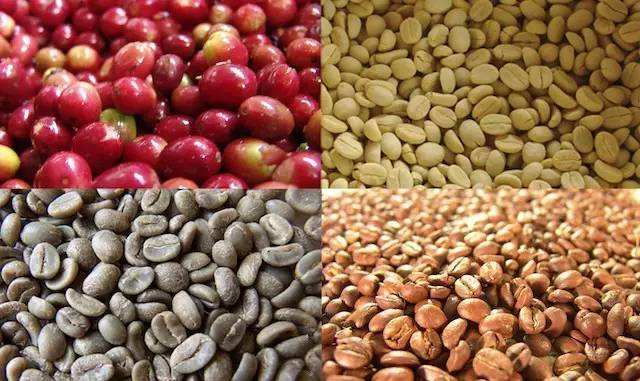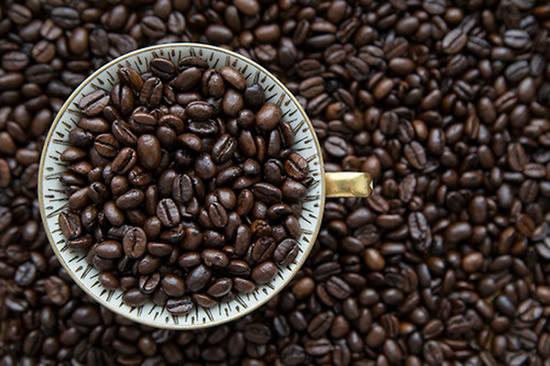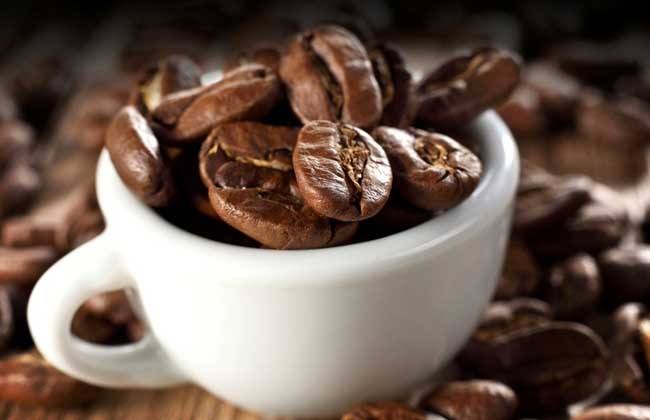Coffee varieties in Santos, Brazil. Yield Red bourbon varieties Coffee beans Flavor characteristics Taste description
Follow the caf é (Wechat official account vdailycom) and found that Beautiful Cafe opened a small shop of its own.
Brazilian coffee generally refers to coffee produced in Brazil. There are many kinds of Brazilian coffee, and like other Arabica coffee, Brazilian coffee is called "Brazils" to distinguish it from "Milds" coffee. The vast majority of Brazilian coffee is unwashed and sun-dried and is classified according to the name of the state of origin and port of transport. Brazil has 21 states and 17 states produce coffee, but four of them produce the largest, accounting for 98 per cent of national production: Parana, Sao Paulo, Minas Gerais and Espirito Santo, with the southern state producing the most, accounting for 50 per cent of total production.

The largest coffee producer, which accounts for 1/3 of the world's coffee consumption, accounts for 1/3 of the world's coffee consumption and has a place in the global coffee market, although Brazil faces several times more natural disasters than other regions. but its acreage is enough to make up for it.
There are many kinds of coffee here, but its industrial policy is large and cheap, so there is not much premium coffee, but it is a good choice for mixing other coffees.
One of the most famous is Sandos Coffee, which tastes mellow and neutral. It can be boiled directly or mixed with other kinds of coffee beans to form a comprehensive coffee. It is also a good choice.
Other kinds of Brazilian coffee, such as Rio and Parana, can be produced in large quantities because they do not require too much care. Although the taste is rough, it is a kind of high-quality and inexpensive coffee, which has its own standards because it is distributed all over Brazil and varies in quality (NO.2~NO.8 according to the number of sundries, NO.13~NO.19 according to the size of beans, and six grades according to taste). Almost all Arabica varieties are of good quality and stable in price. The most famous one is "Brazil Santos", which has been a necessity of blended coffee and is familiar to the public since ancient times. Recently, the "Guilma Cup" is also highly rated.
● quality beans: Santos NO.2, size NO.18
The characteristics of ● taste: mild, moderate sour and bitter, soft flavor.
The best fried culture degree of ●: medium fried culture.
Brazilian coffee has many large farms and runs endless coffee plantations. They use machines to harvest and dry them. They are so efficient in automation that they regard Brazilian coffee as a general agricultural material, abandoning flavor and ignoring it completely. As a result, many select coffee companies simply do not sell Brazilian beans so as not to demean themselves. In select coffee shops, there are still occasional Brazilian "santos" coffee, but they are all "Bourbon Santos" (bourban santos) rather than low-priced "Ping Dou Santos". Santos is a descendant of the bourbon species, hence the name for the port of Santos export. In the first three or four years before the coffee tree began to bear fruit, the beans were small and curved, with excellent flavor, and became the "Bourbon Santos". After that, the beans became bigger, flat in shape, no longer bent, and became "flat bean Santos". The flavor was not as good as before. Brazilian coffee can be found everywhere in Taiwan, but most of them are flat bean Santos. In fact, there are still high-quality coffee beans in various parts of Brazil, which will be sold on the market under their own name and are no longer commonly known as "Brazilian coffee." Some farms still retain the old bourbon species, with small particles of raw beans, obvious bending, red silk on the central line and the nickname "red center". Bourbon beans taste full, strong aroma, like drinking old wine, it is well worth a try.
Important Notice :
前街咖啡 FrontStreet Coffee has moved to new addredd:
FrontStreet Coffee Address: 315,Donghua East Road,GuangZhou
Tel:020 38364473
- Prev

Nicaraguan coffee producing area, origin of Nicaraguan coffee beans
Following Cafe (official Wechat account vdailycom) found that the Cafe Beautiful opened a small shop of its own in Nicaragua, which is mainly divided into four major producing areas, namely (Segovias), Madaguelba / Senoda (Matagalpa/Jinotega), Boaco (Borgo) and Pacific (Pacific Coast area). The highest planting height in Bosnia and Herzegovina is about 1500 2000.
- Next

Brazilian coffee bean producing area, Brazilian coffee bean grade
Following Cafe Review (official Wechat account vdailycom) found that Brazilian Coffee, which opened a small shop in Fairview Cafe, had a low sour taste, matched with the sweet and bitter taste of coffee, and had a slight grassy aroma, with a slightly bitter taste in the fragrance, smooth taste and pleasant aftertaste. There are no outstanding advantages for Brazilian coffee.
Related
- Detailed explanation of Jadeite planting Land in Panamanian Jadeite Manor introduction to the grading system of Jadeite competitive bidding, Red bid, Green bid and Rose Summer
- Story of Coffee planting in Brenka region of Costa Rica Stonehenge Manor anaerobic heavy honey treatment of flavor mouth
- What's on the barrel of Blue Mountain Coffee beans?
- Can American coffee also pull flowers? How to use hot American style to pull out a good-looking pattern?
- Can you make a cold extract with coffee beans? What is the right proportion for cold-extracted coffee formula?
- Indonesian PWN Gold Mandrine Coffee Origin Features Flavor How to Chong? Mandolin coffee is American.
- A brief introduction to the flavor characteristics of Brazilian yellow bourbon coffee beans
- What is the effect of different water quality on the flavor of cold-extracted coffee? What kind of water is best for brewing coffee?
- Why do you think of Rose Summer whenever you mention Panamanian coffee?
- Introduction to the characteristics of authentic blue mountain coffee bean producing areas? What is the CIB Coffee Authority in Jamaica?

